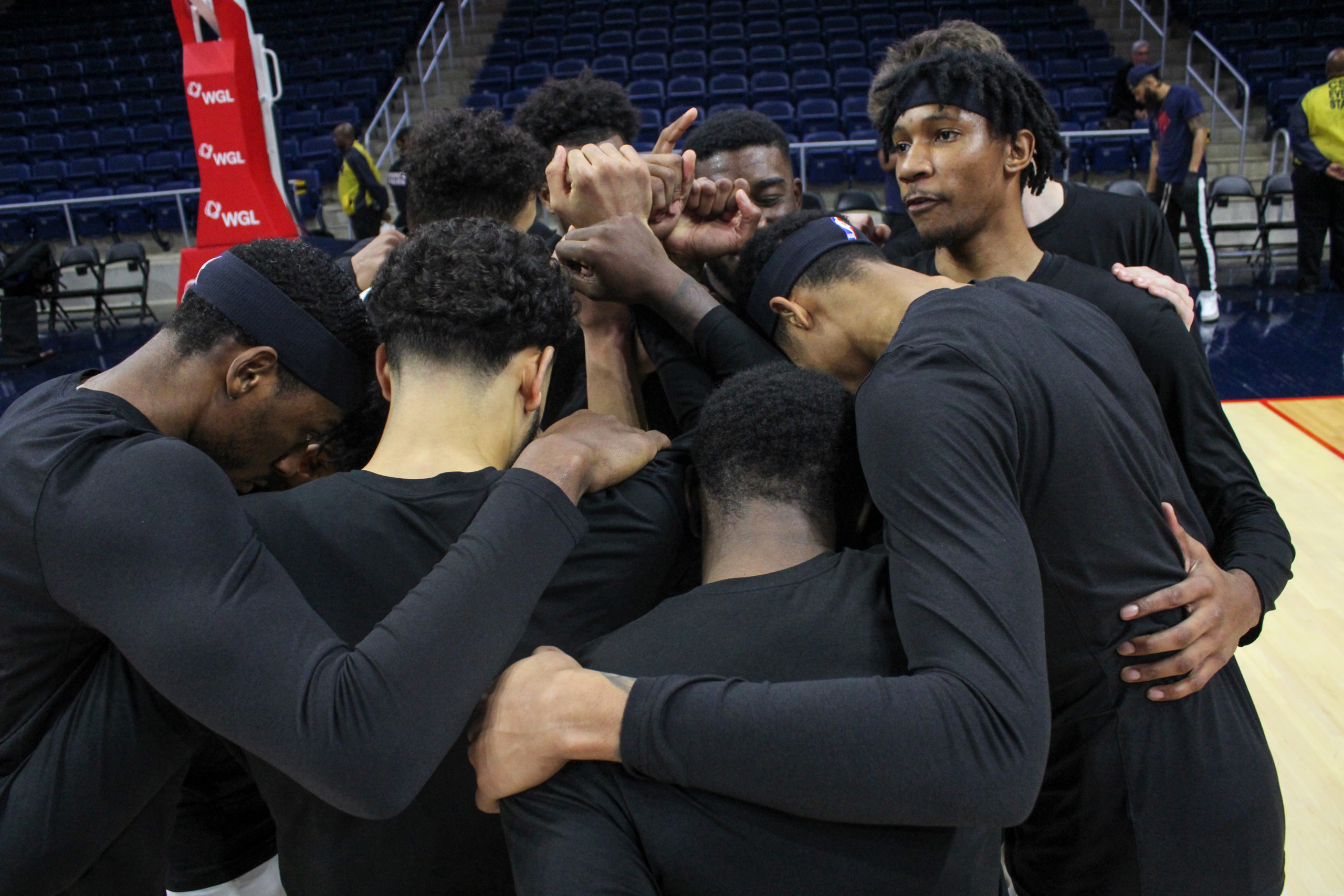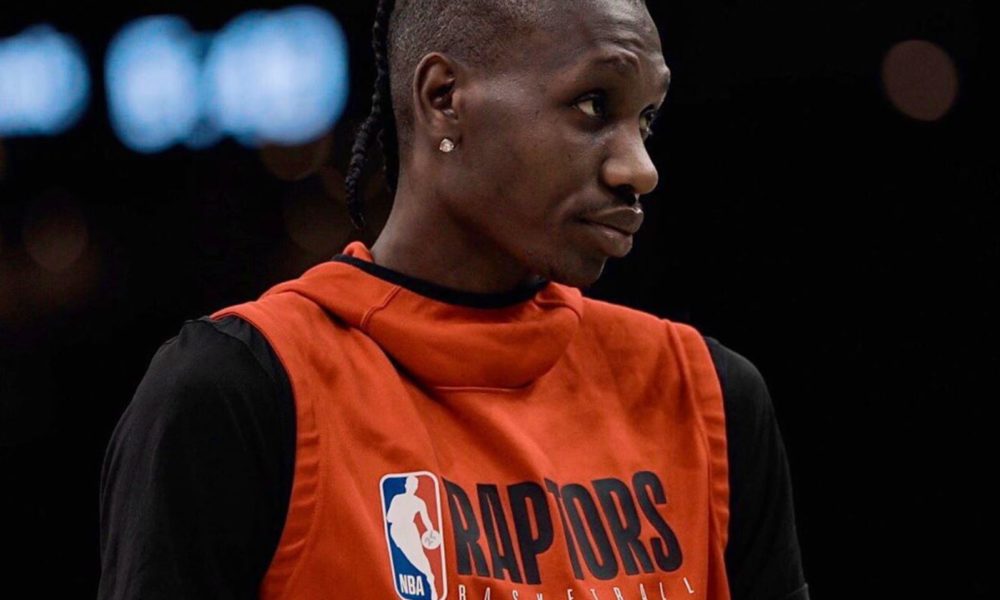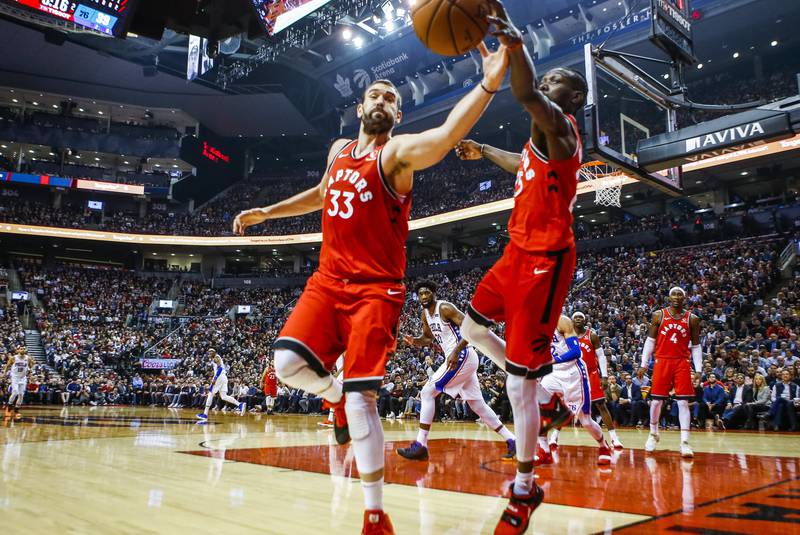I’ve been trying, since Wednesday, to put into words the feelings of covering the Raptors 905 game that mattered the most, and yet, not at all.
It can’t be described by the 905 holding Charles Brown Jr., the Skyhawk’s only two-way player, to just 9 points, or in Henry Ellenson finally finding his shot out of a slump, and shooting 100% from 3. What should have been a celebration, of the 905 not only reaching the above .500 mark, but sliding into the sixth and final playoff spot, was marred by the scurried shuffling of players out of the arena after the final buzzer, as through varying degrees of separation, they had been in contact with the first player to test positive for COVID-19.
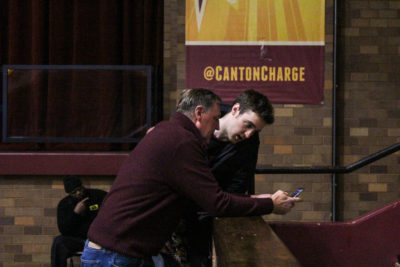
It’s hard to fathom that the final game for the 905 wasn’t played by Nicholas Baer, a walk-on for the University of Iowa, who had proved himself both a 3 and D threat, and honorary Jamaican, to Oshae Brissett and Devin Robinson. It wasn’t played by Jared Wilson-Frame, who had joined the team only 5 days prior after Jawun Evans was ruled out for the remainder of the season. What would it mean for him, for someone who had waited patiently for the opportunity to play in a league with a closer proximity to the NBA than his previous Limburg United? What would it mean for Jawun Evans, whose season ended only days before his teammates’? Would he still be paid for the remainder of the season? Would the worker’s compensation that he is entitled to during rehabilitation be rejected because technically he didn’t have a job to go back to anyway? What about Sagaba Konate, who had played his best game as a Raptor on March 7th, yet still returned to the court immediately after the locker room meeting, like he always does, to get shots up? Despite all of the circumstances, a college knee injury, followed by a fractured foot before his first G League season began, his determination remained. A tough nut to crack in the beginning, I now can’t imagine walking into the arena and not being greeted with a smile and a wave from him. I think about Michael Bethea Jr., the final DNP, another career with stops and starts that mimic a game of musical chairs, lumbering from Reno, to Grand Rapids, and finally finding a home with the Raptors 905 at the time he needed it most. His son, Dax was born just two weeks before he headed to Mississauga. He had purpose, outside of basketball, telling Blake Murphy of The Athletic that Dax’s arrival caused him to play a little differently. When you watched him play, whether for Dax or to prove himself, you are baffled as to why Grand Rapids would cut him. Here he was, making his mark on a league that hadn’t been kind to him, permanent. Once again, his future is in limbo, this time with a baby in tow. Michael relishes in fatherhood. It’s a topic that, once brought up, ignites a light in his eyes that is only visible if you’ve felt it. It’s what bonded him and head coach, Jama Mahlalela, developing a trust between player and coach that could be witnessed mid-game, with Bethea checking out and immediately asking his coach what he could do better.
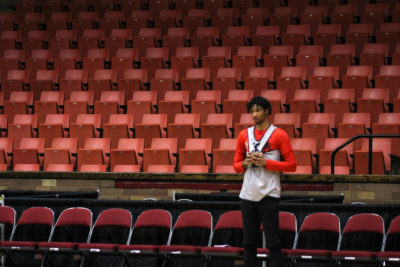
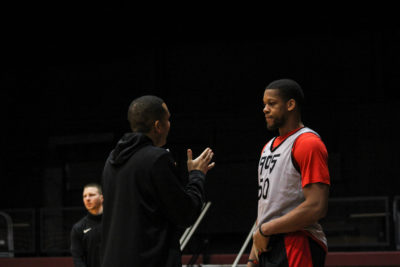
The air of the Paramount Fine Foods Centre hung with the same thickness of the gnats that appear in swarms when spring transitions to summer, dizzying and inescapable. The Raptors 905 had, in previous games, learned how to close out games. They had this one in the bag, a feat that at the beginning of the season, felt impossible. The news of both the NBA season being suspended, and of Rudy Gobert testing positive for the virus had reached those in attendance before it could reach those on the floor or the bench, shifting the mood from that of a celebratory one to one of uncertainty. A time-out called by the College Park Skyhawks allowed the teams to be notified of the circumstances, while instructing players on how to gain or keep the lead. It also provided a temporary lightness, and a go-ahead to laugh. Above the court, the jumbotron projected a video of 905 players, headphones on, listening to brief clips of songs, determining whether or not the song was a bop. While all featured agreed that Sicko Mode was indeed a bop, they were split on Careless Whisper by George Michael, with Tyler Ennis and Duane Notice passing on the song, and Devin Robinson confirming that the song bangs. By the end, the video showed only Robinson, agreeing with every song, and singing A Thousand Miles by Vanessa Carlton, long after the song had stopped playing. It was the kind of positive goofiness that had come to be expected of Robinson, whose ability to make a room full of people erupt with laughter in even the most dejected of times is rivaled only by his talent. Robinson, who joined the 905 after a stint with the Washington Wizards and their affiliated Capital City Go-Go from 2017-2019, and the Portland Trail Blazers during Summer League, is the most talented big man on the floor, no matter the opponent. He entered as a score-first player with footage of his dunks stretching longer than his lanky frame, and left as a positive asset to any team, be it G League or NBA. He credits his development to the 905’s training staff, coaches, and front office. He grew as a basketball player, but even more as a person. His confidence, often unwavering, was evident in every facet. From his fashion choices, once questioned by assistant coach Charles Dube-Brais’s young son who asked, en francais, why Devin was wearing his pajamas, to his renditions of O’ Canada, bellowing out in an arena just beginning to fill up, to the strides and adjustments he made in game. He knows exactly who he is, and the Raptors 905 allowed him to become the best version of that.
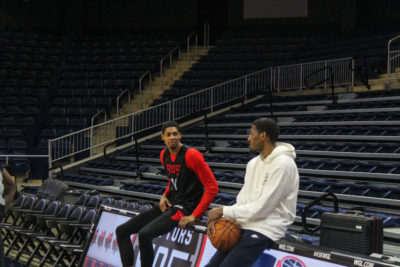
Growth, as coach Jama has always preached, was the immediate goal of the 905, outside of a championship. Putting players in a position to succeed after their time with the club had concluded, was where the organization excelled. Nowhere was this more evident than in the signing of Tyler Ennis, former NBA guard and 18th overall pick. A devastating broken leg suffered in the fall of 2018 would have made most teams hesitant to sign him, yet less than a year out from rehabilitating, the Toronto Raptors signed him, not as an act of good faith for the Canadian born star, but as a reassurance, a stepping stone, that he would return to the NBA. No one was closer than Ennis to a 10-day contract or one that would bring him back to the league remainder of the season. While always an elite passer, Ennis led the G League in assists from the beginning until the untimely end. He did it while also being one of the top scorers on any given night. He began the season, rightfully, avoiding full-body contact, and ended it diving for loose balls, driving through traffic, and playing with a level of physicality matched by his drive, determination, and leadership. Ennis didn’t enter the season expecting to take on a leadership role. His quiet, observant demeanor, to the naked eye, is not the making of a typical leader. But he was, on and off the court. Perhaps because of his passive nature, when Tyler spoke, his teammates listened. Despite having two young daughters at home, and a partner who travels often for her own career, Tyler was always the first in the gym, and the last to leave the court after pregame warmups. When you meet his girls, you begin to understand why Ennis is so soft spoken, perhaps because between their giant personalities compacted in their tiny bodies, he doesn’t have a choice. What will happen to Tyler’s family, who attended every home game, and, by the kismet workings of the universe, were able to watch not only their son and brother grow, but their granddaughters and nieces as well?
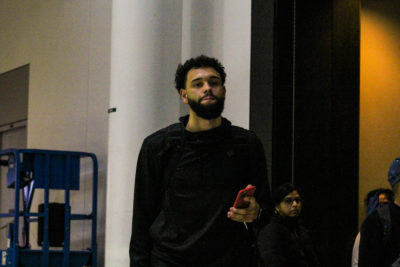
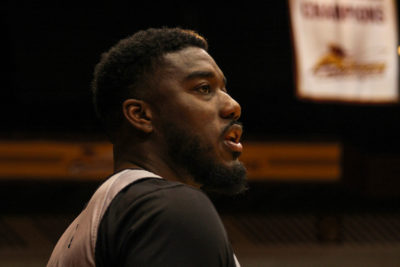
Just as involved as the Ennis family was the Notice/Carr family. Duane’s father, Paul, in attendance for all of his son’s games, possessing the same calm and quiet nature he passed down to his son. I think of his mother, Suzette, and his younger brother Marcus, who had just broken the University of Minnesota’s single-season assist record, an echoing of Duane’s style of play. How, as a mother, can you deal with the heartbreak of watching both of your sons’ dreams cut short by circumstances beyond their control? Duane was the only player to return to the 905 from the previous season, but would a third season in the G League with little pay be a neon sign flickering “not NBA material” over his head, even if that was the furthest thing from the truth? Though the season didn’t go as expected, with Duane coming off of the bench, and his minutes peaking and pitting like a rollercoaster, he played every minute without any signs of frustration. He played team basketball every single night, never looking to add to the highlight reel he so deserved. He was the first on the bench to congratulate his teammates and to join the huddle, and often entered the game to clean up any messes made by his teammates, slowing the pace to one more suitable for the 905, and facilitating ball movement when isolation play wasn’t working. The comfort of home, of having his family by his side, watching his two younger sisters, Ava and Mia, grow up, would it all disappear next season if he were to take up an offer to play overseas?
I think of rookie Matt Morgan, who after losing Jawun Evans, became the 905’s primary bench guard. Originally an automatic three-point shooter, his development into an aggressive defender and driver would be beneficial to any rebuilding NBA team. I worry that without the playoffs, his growth would be forgotten. The patience displayed by someone only 22 years old is admirable. The genuine happiness he exudes every time his teammates, or fellow players in the league, make that next step, is even more so. Skills can be taught, they can be tweaked, and perfected. Heart cannot. The heart, the willingness to learn, is what sets Morgan apart from his draft mates.
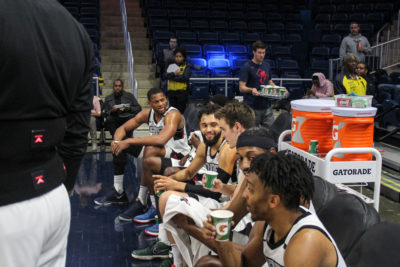
Witnessing the perseverance of Justin Reyes pay off ten-fold, only to be stopped in its tracks, is the toughest pill to swallow. After a season blemished with injuries, DNPs, and being squeezed out of the rotation, Justin Reyes single-handedly won the first of two back-to-back home games against the Skyhawks, earning himself more minutes each night, and praise from his coaches, only to have it ripped away. My hope is that Reyes is remembered for these games, because these games are the most accurate representation of who he is and what he can do, given the opportunity.
I think of Justin Anderson, icing his knees post-game while crooning Future’s ‘Never Stop’ at the top of his lungs. The lyrics, “tryna run a billion up until my ankles pop/ I just wanna see my dawgs ball, 7 figures” never hitting closer to home than they do in a league where the window of opportunity to reach your dreams closes in April, with the next season, the next chance to impress, not promised.
Selfishly, I think of my own losses. I think of every goodbye I didn’t get to say, in a league where the doors are constantly opening and closing for new players, where a roster is never set in stone. I think of the fact that these players owe me nothing. They don’t have to stay in contact. They don’t have to leave and ever think about the girl who brings the cookies again. I think of how I never got to bring them Nanaimo bars before they left Canada, possibly forever. I want to hibernate in the news of Paul Watson Jr. returning to the 905, this time on a two-way contract, and allow the feeling to envelope me like a weighted blanket. I find solace in the assurance that both Watson and Oshae Brissett will be back next season, hopefully, with the same fate as Fred VanVleet, Pascal Siakam, and Chris Boucher. It’s hard to relate to the brotherhood of a professional sports team until you’ve witnessed it, breathed it in, firsthand. I get it now. I was there for the highest highs, and the lowest lows, and at the end of the day, I just hope I told their stories the way they deserve to be told.

